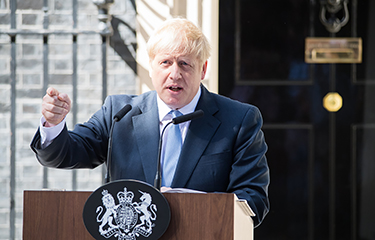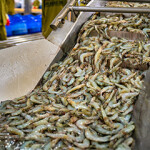Brexit talks hinge on reciprocal access for EU fishing fleet

European Union and United Kingdom negotiators will this week push harder to establish an agreement on post-Brexit trade after both sides agreed "to go the extra mile.”
A deadline to finish talks had been set for Sunday, 13 December, but U.K. Prime Minister Boris Johnson and European Commission President Ursula von der Leyen have agreed to an extension after discussing the major unresolved topics in a phone call.
According to a joint-statement from von der Leyen and Johnson, the call had been “constructive and useful.”
“Our negotiating teams have been working day and night over recent days. And despite the exhaustion after almost a year of negotiations, despite the fact that deadlines have been missed over and over, we think it is responsible at this point to go the extra mile,” the statement said. “We have accordingly mandated our negotiators to continue the talks and to see whether an agreement can even at this late stage be reached. The negotiations continue here in Brussels.”
The two parties have struggled to overcome differences on three critical issues: Creating a level playing field, governance, and fisheries – with both sides stating their uncertainty over whether a deal will be in place on 1 January, 2021.
Last week, the European Commission put forward a set of targeted contingency measures ensuring basic reciprocal air and road connectivity between the E.U. and the U.K., as well as allowing for the possibility of reciprocal fishing access by E.U. and U.K. vessels to each other's waters.
It said the aim of these contingency measures is to cater for the period during which there is no agreement in place.
The fisheries proposal is for a regulation that creates a legal framework until 31 December, 2021 – or until a fisheries agreement with the U.K. has been concluded – that would continue the aforementioned reciprocal access by E.U. and U.K. vessels to each other's waters after 31 December, 2020.
“In order to guarantee the sustainability of fisheries and in light of the importance of fisheries for the economic livelihood of many communities, it is necessary to facilitate the procedures of authorization of fishing vessels,” it states.
The U.K. left the E.U. on 31 January, 2020, with both sides agreeing on a transition period until 31 December, 2020, during which time E.U. law has continued to apply to the former.
Campaigners have warned of great risks and sustainability issues should no fisheries agreement between the U.K. and the E.U. be established.
Photo courtesy of Michael Tubi/Shutterstock






Share